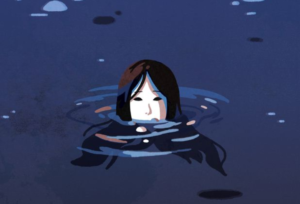From The Globe and Mail: “Mindfulness, neuroplasticity, trauma-informed cognitive behavioural therapy, psychoanalysis, career coaching, Kripalu yoga – the list of ‘cures’ for our lack of resilience and related problems is endless. If you are overweight, alone, miserable at work or crippled by stress or anxiety or depression, there are hordes of gurus and experts chasing you with books and quick fixes. With their advice, guidance, motivation or inspiration, you can fix your problems.
But make no mistake: They are always your problems. You alone are responsible for them. It follows that failing to fix your problems will always be your failure, your lack of will, motivation or strength. […]
I, too, wish life were as simple as it is described in the first chapter of Eckhart Tolle’s bestselling book The Power of Now. It opens with the story of a beggar sitting on a box. A stranger comes along and asks the beggar what’s inside. The beggar, who has sat on the box for years, has never thought to open it. When finally he does, it is full of gold. Thus we are all beggars seeking something from someone else when everything we need is already there inside us.
But stories such as this are misleading, if not dishonest. Personal explanations for success actually set us up for failure. TED Talks and talk shows full of advice on what to eat, what to think and how to live seldom work. Self-help fixes are like empty calories: The effects are fleeting and often detrimental in the long term. Worse, they promote victim blaming. The notion that your resilience is your problem alone is ideology, not science.
We have been giving people the wrong message. Resilience is not a DIY endeavour. Self-help fails because the stresses that put our lives in jeopardy in the first place remain in the world around us even after we’ve taken the ‘cures.’ The fact is that people who can find the resources they require for success in their environments are far more likely to succeed than individuals with positive thoughts and the latest power poses.”












